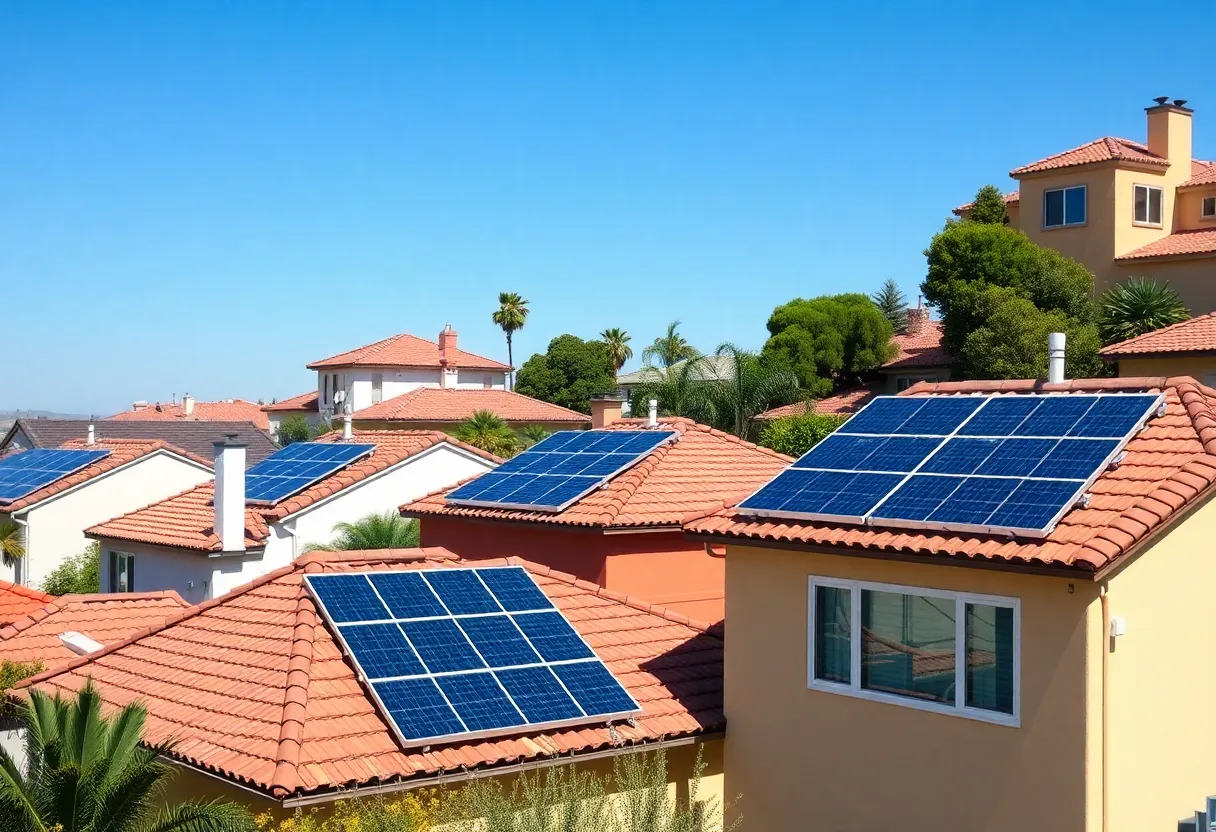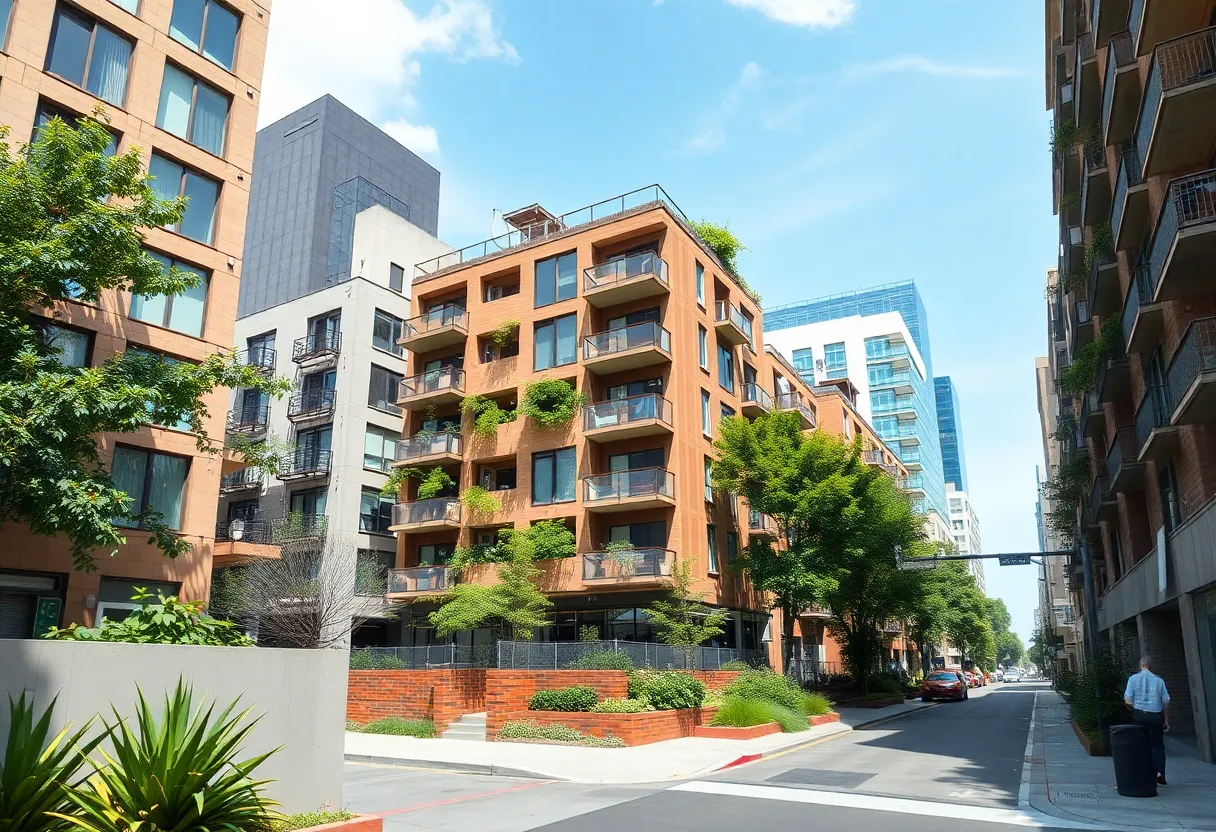News Summary
California’s Assembly Bill 942 has undergone significant amendments aiming to remove controversial rooftop solar subsidy changes. Initially designed to shift costs onto non-solar customers, the bill now focuses on enhancing consumer access to carbon credits. Influenced by public protests and advocacy, the revised proposal retains protections for existing solar agreements. Stakeholders are now monitoring further developments as the bill moves through the Senate, amidst ongoing debates about solar subsidies’ economic impact on households statewide.
California has seen a significant shift in the legislative landscape regarding rooftop solar incentives with the recent amendments to Assembly Bill 942. This contentious bill, initially focused on altering solar subsidies for property owners with rooftop installations, has now entirely removed references to those incentives, addressing the public outcry from advocates and consumers alike.
Authored by Assemblymember Lisa Calderon, the original proposal sought to address the cost-shift of solar subsidies to non-solar customers by mandating new property owners with rooftop solar systems to transition to a lower net metering tariff. This change could have impacted established agreements previously held by solar system owners, causing considerable concern within the community. However, during a Senate Energy, Utilities and Communications Committee meeting on July 15, the legislation underwent a substantial revamp, redirecting its focus towards consumer access to carbon credits instead.
The amendments were largely influenced by the mobilization of solar advocates, who organized protests and public campaigns, expressing their strong opposition to the initial provisions of AB 942. As a result of this grassroots activism, many stakeholders have retracted their opposition to the bill, acknowledging the changes made to protect rooftop solar systems and their owners.
In a notable turn of events, Greg Sparks, a solar homeowner from Davis, expressed support for the revised proposal, which retains essential protections for existing rooftop solar agreements. This shift reflects the broader sentiment among California residents who rely on solar energy and emphasizes the importance of community engagement in the legislative process.
Bernadette Del Chiaro, senior vice president of the Environmental Working Group in California, acknowledged the impact of public discontent in altering the original intent of AB 942. The bill’s new direction aims to benefit the majority of Californians by focusing on lowering electricity costs, as asserted by Calderon. The upcoming stages of AB 942 entail its review by the Senate Appropriations Committee, where additional amendments may be considered, potentially delaying or altering the bill further.
The dialogue surrounding rooftop solar is expected to continue as advocates keep a close watch on related legislation. Notably, Senate Bill 710 is under scrutiny, as it has the potential to enhance solar installations within the state. The discourse has revealed underlying tensions, particularly concerning the economic implications of solar subsidies, which have reportedly shifted a significant financial burden onto non-solar households.
An analysis of previous solar subsidy frameworks indicated that these incentives, originating in the mid-1990s to promote clean energy solutions, have inadvertently contributed to rising costs for non-solar consumers. In the past year, costs attributed to solar subsidies amounted to over $8.5 billion, affecting around 10 million households without solar energy systems. This financial dynamic has fueled ongoing debates about affordability and sustainability in California’s energy market.
The pushback against AB 942 was further intensified by concerns that modifications to the subsidy structure could negatively influence property values for homeowners with solar installations. Additionally, critics have scrutinized Calderon’s past affiliation with Southern California Edison, casting doubt on her motives behind the legislative proposals. This situation underscores the complexities of regulatory changes impacting solar energy compensation in California.
In conclusion, Assembly Bill 942’s journey reflects a dynamic and contentious debate over rooftop solar incentives, balancing the need for affordable energy solutions against the interests of both solar and non-solar consumers. As the bill progresses through the legislative process, stakeholders remain vigilant, advocating for policies that ensure equitable access to solar energy while addressing the associated economic challenges.
Deeper Dive: News & Info About This Topic
- KTVU: California bill could slash rooftop solar credits
- ABC10: California Public Utilities Commission rooftop solar changes
- Mercury News: Controversial solar bill advances in Sacramento
- Wikipedia: Solar Power in California
- ABC10: Bill that could cut back rooftop solar credit

Author: STAFF HERE HOLLYWOOD
The Hollywood Staff Writer represents the experienced team at HEREHollywood.com, your go-to source for actionable local news and information in Hollywood, Los Angeles County, and beyond. Specializing in "news you can use," we cover essential topics like product reviews for personal and business needs, local business directories, politics, real estate trends, neighborhood insights, and state news affecting the area—with deep expertise drawn from years of dedicated reporting and strong community input, including local press releases and business updates. We deliver top reporting on high-value events such as the Hollywood Bowl summer concerts, the Hollywood Christmas Parade, film premieres at TCL Chinese Theatre, and festivals at the Magic Castle. Our coverage extends to key organizations like the Hollywood Chamber of Commerce and Visit Hollywood, plus leading businesses in entertainment, dining, and tourism that define the local economy. As part of the broader HERE network, including HERELosAngeles.com, HEREBeverlyHills.com, HEREAnaheim.com, and HEREHuntingtonBeach.com, we provide comprehensive, credible insights into Southern California's dynamic landscape.



